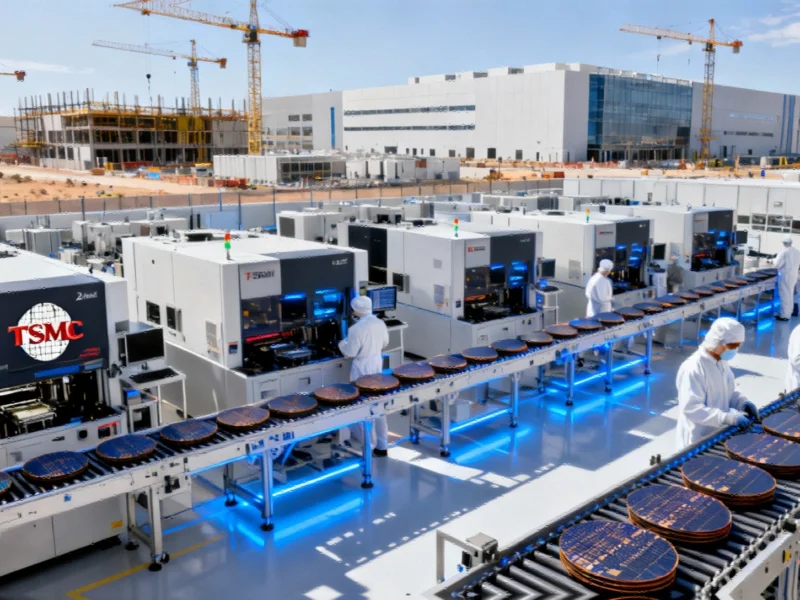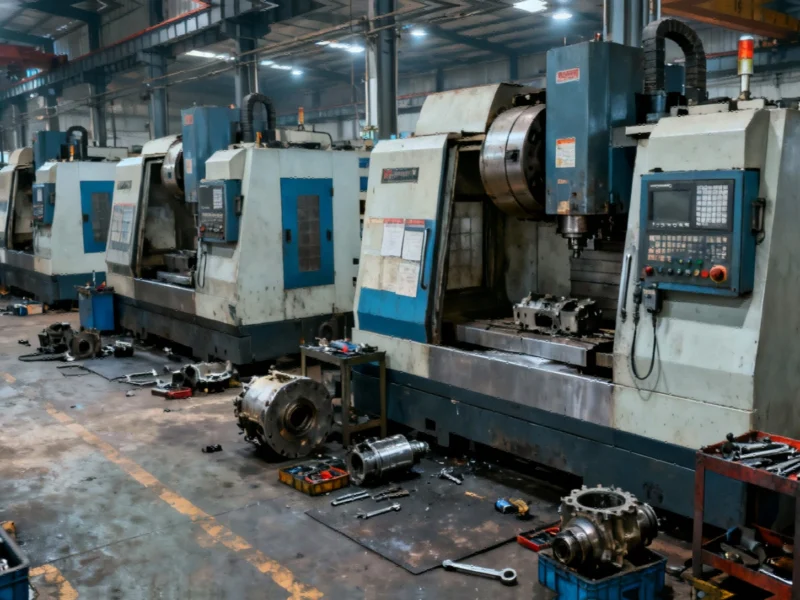TSMC Accelerates U.S. Expansion with Advanced 2nm Technology
Taiwan Semiconductor Manufacturing Company (TSMC) has revealed ambitious plans to significantly scale its American operations, including securing additional land in Arizona to accommodate future fabrication plants. This strategic move, announced during the company’s recent earnings call, underscores TSMC’s commitment to meeting surging demand from U.S. clients in artificial intelligence and high-performance computing sectors. The expansion aligns with broader industry trends, as highlighted in recent analyses of semiconductor manufacturing shifts, positioning TSMC to narrow the technological gap between its Taiwanese and American facilities.
CEO C.C. Wei emphasized that TSMC is making “tangible progress” in executing its U.S. strategy, with preparations underway to introduce N2 (2nm) and more advanced process technologies at the Arizona site. This initiative responds to what Wei described as “very strong multiyear AI-related demand” from key customers like NVIDIA, AMD, and Apple. The decision to pursue cutting-edge production in the U.S. reflects a significant pivot, as TSMC currently mass-produces 4nm chips in Arizona but aims to bring 2nm technology online by the second half of 2026.
Driving Forces Behind TSMC’s U.S. Investment
The expansion is largely fueled by unprecedented demand for advanced semiconductors, particularly those powering AI applications. As companies increasingly prioritize domestic manufacturing for supply chain resilience, TSMC’s move dovetails with U.S. industrial policy objectives. The broader AI-driven transformation across tech sectors has created a perfect storm of demand, compelling TSMC to accelerate its stateside capabilities. With U.S. clients accounting for a substantial portion of TSMC’s revenue, localizing production of leading-edge nodes becomes not just strategic but essential for maintaining competitive advantage.
Wei’s announcement about securing a second large parcel of land near existing Arizona facilities indicates TSMC’s confidence in sustained growth. This additional space will provide flexibility to scale operations beyond current plans, potentially accommodating future generations like A16 (1.6nm) production. The expansion from six planned fabs demonstrates TSMC’s serious commitment to establishing the U.S. as a hub for advanced semiconductor manufacturing.
Technological Implications and Competitive Landscape
TSMC’s introduction of 2nm production in Arizona would make it only the second company after Intel to deploy this advanced node in the United States. The 2nm technology represents a significant leap forward, offering improved performance and power efficiency critical for next-generation AI workloads and complex computational tasks that require massive processing power. While Taiwan will maintain a several-year lead in technology implementation, the Arizona expansion will substantially narrow this gap, potentially bringing the U.S. to near-parity in advanced semiconductor manufacturing capabilities by the late 2020s.
The timing of this expansion coincides with increased focus on security considerations for advanced AI systems, making domestic production of critical components increasingly important for both economic and national security reasons. TSMC’s investment signals recognition that geographic diversification of advanced manufacturing is becoming as important as technological advancement itself.
Strategic Importance and Future Outlook
TSMC’s accelerated U.S. expansion represents a fundamental shift in global semiconductor manufacturing geography. The company’s willingness to transfer its most advanced technologies overseas demonstrates the critical importance of the American market and the growing pressure to localize supply chains for strategic industries. This move also strengthens the U.S. position in the global technology competition, particularly in areas like AI where semiconductor capability directly correlates with competitive advantage.
The success of TSMC’s Arizona expansion will depend on multiple factors, including workforce development, supply chain establishment, and navigating the complex regulatory environment. However, the company’s clear commitment to the “Made in USA” narrative suggests it is prepared to overcome these challenges. As TSMC bridges the technological divide between its Taiwanese and American operations, the global semiconductor landscape appears poised for significant reconfiguration, with the U.S. reclaiming a more prominent role in advanced chip manufacturing.
Based on reporting by {‘uri’: ‘wccftech.com’, ‘dataType’: ‘news’, ‘title’: ‘Wccftech’, ‘description’: ‘We bring you the latest from hardware, mobile technology and gaming industries in news, reviews, guides and more.’, ‘location’: {‘type’: ‘country’, ‘geoNamesId’: ‘6252001’, ‘label’: {‘eng’: ‘United States’}, ‘population’: 310232863, ‘lat’: 39.76, ‘long’: -98.5, ‘area’: 9629091, ‘continent’: ‘Noth America’}, ‘locationValidated’: False, ‘ranking’: {‘importanceRank’: 211894, ‘alexaGlobalRank’: 5765, ‘alexaCountryRank’: 3681}}. This article aggregates information from publicly available sources. All trademarks and copyrights belong to their respective owners.



